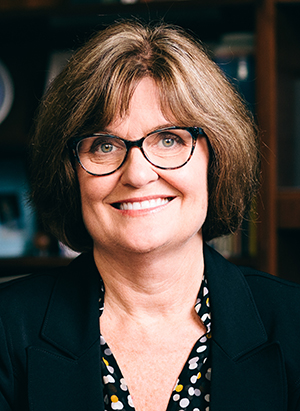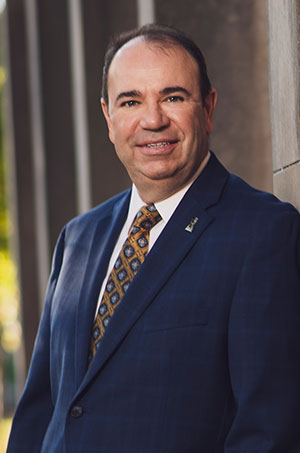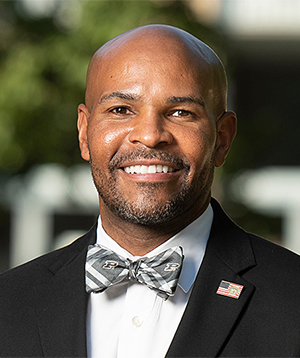Initial phase begins this fall, calls for 14 new faculty in public health
Purdue University is launching one of the largest faculty hiring initiatives in its history as a key part of a $75 million Equity Task Force effort to diversify the racial makeup of its faculty ranks. Over the next five years, 40 full-time faculty will be added through several academic clusters as part of this initiative.
The plan’s initial phase, begun this fall, will focus on hiring 14 faculty in public health, including areas such as policy, equity, communications, nursing, pharmacy and nutrition. The goal is to expand Purdue’s proven public health program, to better respond to the growing industry workforce demands in Indiana and the region, to enhance the university’s research excellence, and to provide greater career opportunities for underrepresented minority faculty.

“Our land-grant mission is deeply rooted in the ideas of access and equity,” said John Gates, vice provost for diversity and inclusion. “Through this comprehensive five-year, $75 million effort, our goal is to further enrich and significantly diversify Purdue’s faculty, staff and student body – to maximize the success of all Boilermakers.
“A more diverse faculty and student body lifts the research and learning enterprise of our entire university. We see an intrinsic connection between diversity and excellence.”
Through the multiyear effort, the 10-member Equity Task Force Implementation Team has been tasked by the Purdue Board of Trustees to elevate the university’s diversity efforts as a leader in attracting Black students and faculty and fostering their success through transformative education and world-changing research.
Peter Hollenbeck, Purdue vice provost for faculty affairs, is leading the team identifying areas for cluster hires of new tenure-track faculty in public health. Additionally, Hollenbeck’s team is collaborating with Purdue’s academic and research community to determine the number and cadence of other cluster hires. Two new hires in African American studies also are planned.
“The demand is high, the need is great and the timing is optimal,” Hollenbeck said. “Launching this many cluster hire searches at once is unprecedented and truly exciting. We’re sending the message that Purdue is looking to establish a large footprint in public health, that we are taking the necessary steps to expand mentoring and community-building initiatives, and enhancing career development opportunities and professional recognition for diverse faculty members.”
Initial hires in public health
An emerging practice in higher education that originated during the late 1990s, cluster hiring involves adding faculty into multiple departments or colleges around interdisciplinary research topics, or clusters, according to the Association of Public and Land-grant Universities. Purdue has successfully used this strategy to strengthen specific research areas before.
The first step in this current effort will see hires in the colleges of Health and Human Sciences, Liberal Arts and Pharmacy, and in Purdue Libraries and the School of Information Studies.

Marion Underwood, HHS dean and distinguished professor of psychological sciences, said potential areas within this initial phase are public health, social demography, health policy analysis, public health administration, public health education and communication, health science information, specialties, health science analytics, and health equity and disparity. Of those 14 prospective hires in public health, nine are projected to be through Health and Human Sciences.
“Purdue is uniquely positioned to help meet the need for additional public health care workers and to enhance public health and health equity in Indiana and the nation,” said Underwood, who authored a proposal for a significant Purdue investment in public health in December 2020. “Purdue has particular strengths in pharmacy, nursing, health sciences, food science, nutrition science, biomedical engineering and Extension. All can contribute to a distinctively Purdue effort in public health and health equity that’s untouchable by other universities in Indiana and nationally.”
Significant foundation to grow public health
Much of Indiana has a shortage of basic, primary medical care: 87% of Indiana’s rural population and 62% if its urban population live in areas with primary care shortages. The state also faces serious challenges in health equity. Almost 29% of Indiana’s Black and 22% of Hispanic residents, for example, live in food deserts, geographic areas where access to healthy, fresh food is limited by proximity to a grocery store.
To help respond to that challenge, HHS created the Department of Public Health in June 2019, building on the strengths of its new master’s degree in public health and including an undergraduate major in public health.

In January 2020, the College of Pharmacy launched the Center for Health Equity and Innovation to address the needs of underserved populations locally and globally.
“This initiative will provide a great boost to the efforts already underway,” said Eric Barker, dean of the College of Pharmacy. “The last nearly two years really exposed needs in various aspects of public health, particularly in underserved areas. Once again Purdue is providing leadership that will lead to societal solutions.”
Dr. Jerome Adams, former Indiana state health commissioner and the 20th U.S. surgeon general, was recently appointed as Purdue’s first executive director of health equity initiatives and is playing a key role in the public health cluster hire process. This Purdue effort, he said, comes at critical time in the nation’s need for addressing and equipping the next generation of academic and industry leaders in public health, health equity and pharmacy.

“The COVID-19 global pandemic has shined a stark light on the price we pay for the equity gap in our nation’s health care system,” Adams said. “Building the best, brightest and most diverse team of faculty members and researchers in public health and health equity will have a lasting impact in advancing solutions to this significant challenge in our world – bridging that gap and helping ensure the health and well-being of our local, regional and national communities.”
Adams also serves as a Presidential Fellow, a professor of practice in the departments of Public Health and Pharmacy Practice, and a faculty member of the Regenstrief Center for Healthcare Engineering at Purdue, which, since its launch in 2005, has focused on examining evidence for the effectiveness and successful adaptation of interventions and policies to improve the quality, accessibility, equity and affordability of health care delivery.
And through Purdue Extension, the university is connected to all 92 Indiana counties, where Purdue Health and Human Sciences educators collaborate with locals to strengthen communities and families by offering educational programs centered on health, family and finances.

